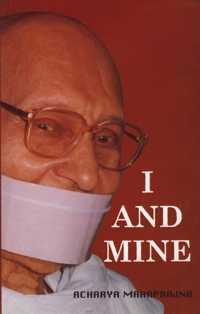
It was nighttime. I was sitting in a lighted room. All of a sudden the lights went off and dense darkness ensued. In a few moments the electric current returned and the light was restored. Within ten minutes this hide and seek between light and darkness must have taken place at least three to four times. It set me thinking. Light is artificial not natural. It is darkness that is natural. There is no power-house to generate it nor does it need a switch to be turned on. On the contrary, for light one needs a source of power, a transmission system, a lamp and so many other things.
Once again I thought how prejudiced man is. He runs after that which is not natural and runs away from the natural. Take the case of forgiveness and anger. It needs almost infinite striving to inculcate that former while the latter is so spontaneously generated. Is not then anger natural and forgiveness unnatural?
I further introspected as a monk. I am used to giving religious discourses and every time I ask people to cultivate forgiveness and to eschew anger. I have discoursed on this theme times out of number and yet to no avail, since I know that people are still much more prone to anger than to forgiveness.
I once came across a man who was a victim of excessive fear. He would be afraid of not only thing present in the immediate environment but even of imaginary objects. Even while he was alive he would imagine death and be afraid of it. I did my best to convince him of the futility of the fear of death since death was inevitable and death unaccompanied by fear would be much less painful. Again, all my persuasion failed. So once again the conclusion is inescapable that fear is natural and fearlessness unnatural.
In the long history of man there have been innumerable sages. They have challenged lust and have vowed to keep it away by not giving it any entry in their thoughts. We, however, know that none of them could conquer lust. The rigorous self-control and its sustained practice so essential for observing Brahmacharya would lead anyone to infer that it is unnatural while its non-observation is natural.
With all these thoughts assailing the mind I was completely out of my depth. How is it that things we feel naturally inclined towards, we regard undesirable and those that we are disinclined against, we regard desirable?
We have a natural liking for the things we feel the need for, as is the case with food and water. No one has ever bound a person under oath to eat food or drink water, nor has anyone ever told another person that if he did not eat, he might have cause to repent. No sermon is needed to induce people to indulge these primary needs. People like eating and drinking simply because doing so make them happy and not doing it would incapacitate them.
Now what would you say, if I were to ask you if you ever felt the need for religion and if you felt miserable in its absence, and further if its absence would render you in any way handicapped? The answer would be obvious. If the need for it were as imperative and obvious as that for food and water, there would be no place for religious precepts.
It would be unnecessary to bind people under oath to follow religion. Thus, we inevitably conclude that following religion is not a natural urge. Only the demands of the body and the desires of the heart are natural. In fact it is this union of physical and emotional needs that characterizes life, In other words, life can be defined, as the fulfilment of natural needs.
Can the need for religion be a part of its definition?
All this leads me to believe that notwithstanding the Herculean efforts made by countless people over the centuries to turn the unnatural into the natural, nothing could be achieved. The physical appetites and urges are even today as compulsive as in the remote past. Fasting, moral awakening, and Brahmacharya are as stubbornly eschewed as ever before. We are as irrevocably wedded to showing hatred and anger as our primitive forebears and as vehemently opposed to peace, love and geniality as they.
Shall we then admit the futility of light - the helplessness of the sun against darkness? Obviously, no. Nature loves polarity. Both light and darkness have to co-exist. Likewise, it is futile to blame mediums for not completely eradicating disease. The being of one necessitates that of the other.
 Acharya Mahaprajna
Acharya Mahaprajna

